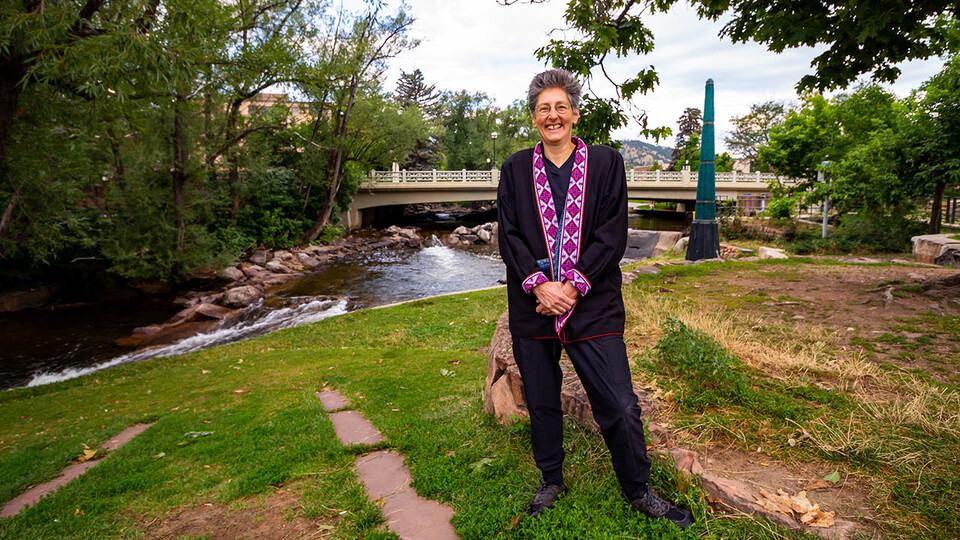Dan Moser, September 21, 2021
Michaels to study flooding management in Canada as Fulbright project
As a second-grader in Winnipeg, University of Nebraska–Lincoln scholar Sarah Michaels recreated the 1950 Red River flood in plasticine on her teacher’s desk. Now, she’s back in Canada to again tackle how to understand flooding.
Michaels, professor of political science and a faculty fellow with the University of Nebraska Public Policy Center, has been named Fulbright Canada Distinguished Research Chair in Environmental Science at Carleton University. She is spending the 2021-22 academic year at the Ottawa-based institution exploring innovative approaches to environmental policy with colleagues at Carleton, the University of Ottawa and nearby government agencies and nongovernment organizations.
Michaels’ second-grade project marked the beginning of a lifelong fascination with how to manage water, including flooding.
“Flooding is the most devastating form of natural disaster on the planet,” said Michaels, who’s been at Nebraska since 2007.
For her undergraduate thesis, she surveyed stormwater impoundments then in use in municipalities across Canada.
Michaels’ Fulbright project seeks to improve best practices in addressing flood threats by grappling with how to engage productively with uncertainty in water governance.
“Fulbright is all about furthering understanding among people in different countries,” Michaels said. “Part of the reason I’m in Ottawa is to help Canadians appreciate what might be relevant to them about U.S. water management and, specifically, what works in Nebraska.”
Nebraska is known internationally for its distinctive system of natural resources districts constituting locally controlled, tax-funded, watershed-based conservation.
On the flip side, Michaels asked, “What is it they’re doing in Canada that is worth our paying attention to in Nebraska and elsewhere in the U.S.?”
Being part of the Fulbright program provides another opening for Michaels, a social scientist with a track record of participating in interdisciplinary research, to collaborate with environmental scientists.
“I consider this opportunity a great privilege,” she said.
Asked whether plasticine might again play a role in her work, Michaels laughed.
“I understand from some of my young friends (that) plasticine has come a long way,” she said. “They’ve assured me if I were to recreate the flood model now, I wouldn’t make nearly as much of a mess.”






